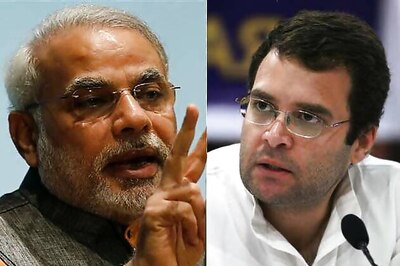
views
Amid an ongoing standoff with the Centre over its privacy policy, WhatsApp on Friday told the Delhi High Court that it has decided to “temporarily put its privacy policy on hold”, till the Data Protection Bill comes into force. The Central government and WhatsApp have been at odds over the new privacy policy, which allows instant messaging app to use some of the “business conversations” hosted with Facebook for advertising.
Making a submission on behalf of WhatsApp, senior advocate Harish Salve said, “Government has asked to shut down the policy. We have said we will not enforce it till Data Protection Bill comes out. That is open-ended because we don’t know when the Bill is going to come out … We have said we will not do this for a while. Suppose the Bill allows me to do it, we will have completely different ramifications.”
“We voluntarily agreed to put it (the new policy) on hold… we will not compel people to accept,” he said.
Further, WhatsApp issued a statement after the hearing, saying, “We will not limit functionality of how WhatsApp works in the coming weeks. Instead, we will continue to remind users from time to time about the update… we will maintain this approach until at least the forthcoming PDP law comes into effect.”
WhatsApp’s New Privacy Policy:
WhatsApp has repeatedly said that its messaging app is end-to-end encrypted, it cannot access your private chats or location and the company does not share private messages or any other data with Facebook. End-to-end encryption was designed to help ensure that nobody other than the person you are talking to can know that you sent a particular message.
However, the new policy update will enable WhatsApp to use some of the “business conversations” hosted with the social network for advertising. Only “when you communicate with a business by phone, email, or WhatsApp, it can see what you’re saying and may use that information for its own marketing purposes, which may include advertising on Facebook,” the company has said.
The messaging app said it will “clearly label conversations with businesses that are choosing to use hosting services from Facebook.” “Messaging with businesses is different than messaging with your family or friends,” WhatsApp added.
Why the Uproar?
WhatsApp — which has 53 crore users in India as per the government data — had faced severe backlash over user concerns that data was being shared with parent company Facebook. The privacy policy had caused a lot of uproar among the users and the government, also leading to some misinformation about WhatsApp which have raised concerns. Following the introduction of the new privacy policy, several users moved to apps like Signal and Telegram.
Earlier, WhatsApp had made it compulsory for the people to accept the policy in order to continue using the messaging app. Backtracking on the condition, the company has said it will not limit the functionality of the messaging app for users not agreeing to its new privacy policy, but will continue to send reminders about the update.
Centre’s Objection to WhatsApp’s New Privacy Policy:
On Friday, Harish Salve said the Union Ministry of Electronics and Information Technology (MEITY) has communicated to the instant messaging platform that its privacy policy is against the Information Technology (Reasonable Security Practices and Procedures and Sensitive Personal Data or Information), Rules 2011.
Terming WhatsApp’s bombarding of notifications on its customers as an “anti-user practice” for obtaining “trick consent”, the central government has previously urged the court to direct the messaging platform to desist from pushing notifications onto its existing users with regard to the new privacy policy. It had also said it was a matter of concern that Indian users were being “unilaterally” subjected to the change in privacy policy by the instant messaging platform.
When the matter was initially listed before a single judge, the Centre had said that WhatsApp was treating Indian users differently from Europeans over opting out of its new privacy policy which was a matter of concern for the government and it was looking into the issue. The Centre’s claim has been made in an additional affidavit filed in response to several pleas challenging the new privacy policy of WhatsApp.
WhatsApp’s Defence:
WhatsApp, opposing the contention, said it was conforming to Indian IT law and rules and added that its policy has come into effect from May 15, but it won’t be deleting accounts right away.
WhatsApp has said its policy update does not change the privacy of people’s personal messages and that its purpose is to provide additional information about how people can interact with businesses if they choose to do so. We hope this approach reinforces the choice that all users have whether or not they want to interact with a business. We will maintain this approach until at least the forthcoming PDP law comes into effect, a WhatsApp spokesperson said in an emailed statement earlier.
The Facebook-owned company has said that it has written to the government seeking to assure them that the privacy of users remains its highest priority. The company insisted that its contentious privacy policy will not limit the functionality of how WhatsApp works.
Read all the Latest News, Breaking News and Coronavirus News here.



















Comments
0 comment